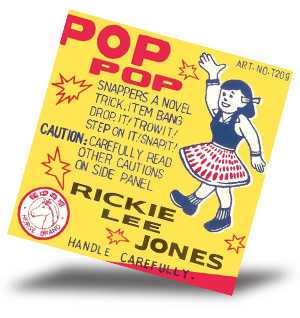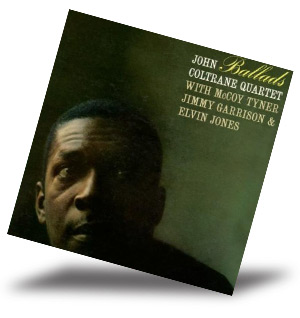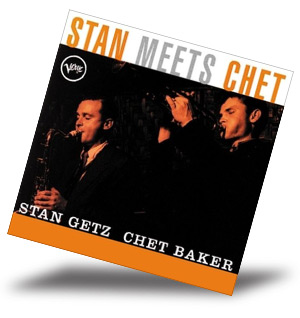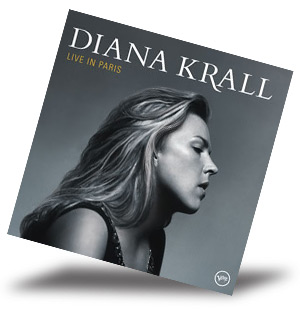 April 2010
Original Recordings
Group
The first thing you’ll notice with many
of Original Recordings Group’s (ORG) two-record vinyl releases is the sturdiness of
the LP covers. I haven’t seen gatefold covers this hefty since the late 1960s, when
record companies started using thinner cardboard and even flimsier material, like the thin
paper Shorepak. The ORG covers are also a bit larger than normal, which prevents them from
splitting, a common occurrence when 180-gram vinyl is shipped cross-country. For me, an LP
cover has always been the introduction to a record, and ORG’s quality control in that
respect is a good sign.
Monti Olson and Jeff Bowers started Original Recordings
Group in 2006 with a vinyl release of Sarah McLachlan’s Wintersong. The
label received some attention last year when it announced it would be issuing
Nirvana’s three major-label releases, Nevermind (1991), In Utero (1993),
and Unplugged (1994) for the first time on wax. (The Seattle-based indie Sub Pop
owns the rights to Nirvana’s 1989 debut, Bleach.) While ORG’s catalog
will soon include recent pop releases by TV on the Radio and Eels, as well as classic
Dusty Springfield and Velvet Underground recordings, much of its focus has been on jazz
titles originally released on Verve and Impulse. Olson is a vice president of A&R for
Universal Music Publishing Group, which may explain why he and Bowers have been able to
license titles from Universal’s many labels.
 Olson and Bowers own ORG outright,
independent of any major label, and their commitment to doing vinyl right defines their
company’s mission. They realize that vinyl is a specialty item, and their product is
luxuriously produced for the truly committed music lover. ORG’s release of the 10th
anniversary edition of Beck’s Odelay features quad gatefold packaging, a
full-color booklet, and careful mastering by Bernie Grundman. The label pressed only 3000
copies of the four-record set. Other flagship Original Recordings Group LPs are
limited-edition 45rpm jazz pressings, once again carefully mastered by Grundman and
pressed by Germany’s Pallas Group, which produces audiophile vinyl for Speaker’s
Corner and Analogue Productions, among others. Those titles run about $60, but ORG also
produces more affordable two-record 33rpm sets ($40 each), and its single-record pop
releases, including the Nirvana LPs, are affordably priced. Olson and Bowers own ORG outright,
independent of any major label, and their commitment to doing vinyl right defines their
company’s mission. They realize that vinyl is a specialty item, and their product is
luxuriously produced for the truly committed music lover. ORG’s release of the 10th
anniversary edition of Beck’s Odelay features quad gatefold packaging, a
full-color booklet, and careful mastering by Bernie Grundman. The label pressed only 3000
copies of the four-record set. Other flagship Original Recordings Group LPs are
limited-edition 45rpm jazz pressings, once again carefully mastered by Grundman and
pressed by Germany’s Pallas Group, which produces audiophile vinyl for Speaker’s
Corner and Analogue Productions, among others. Those titles run about $60, but ORG also
produces more affordable two-record 33rpm sets ($40 each), and its single-record pop
releases, including the Nirvana LPs, are affordably priced.
Rickie Lee Jones’s Pop Pop (ORG 007) is
one of ORG’s 33rpm sets, comprising two 180-gram LPs with three tracks on each side.
David Was and Jones co-produced this collection of 12 standards, including "Bye Bye
Blackbird" and "Spring Can Hang You Up the Most." The accompaniment was
very simple, with Robben Ford on acoustic guitar and Charlie Haden on stand-up bass as the
foundation for many of the arrangements. Steve Hoffman and Kevin Grey remastered Pop
Pop for this vinyl edition, although a few reviews and dealers credit Bernie Grundman.
As soon as Ford’s nylon-string guitar rings from the speakers on the opening track,
"My One and Only," the quality of this pressing is immediately apparent. The
resonance of the guitar, the timbre of the instrument as the strings interact with the
wood, is palpable in a way that a CD rarely captures. Charlie Haden’s bass rumbles
forth and, again, the resonance of the music in the large wooden body of the instrument is
beautifully rich.
The sense of acoustic space on this LP is remarkable and
often delightful, especially for audiophiles who live for the experience of hearing a
singer’s voice as it echoes slightly within the walls of a recording studio.
Lee’s voice is presented sharply and with a stunning three-dimensionality in the
soundstage. The subtle mix of the percussion in "Love Junkyard" is captured
perfectly, and the occasional click of the keys on Dino Saluzzi’s bandoneon adds to
the enjoyment and realism of the recording.  The packaging on Pop Pop is a lightweight single sleeve, but
the inner sleeves are of good quality and the vinyl is heavy and quiet, with just a tiny
hint of groove noise on the lead-in. I hope ORG decides to do more of Lee’s music,
especially The Magazine. The packaging on Pop Pop is a lightweight single sleeve, but
the inner sleeves are of good quality and the vinyl is heavy and quiet, with just a tiny
hint of groove noise on the lead-in. I hope ORG decides to do more of Lee’s music,
especially The Magazine.
I have two versions of John Coltrane’s Ballads (1962),
which I compared to ORG’s Ultimate Edition 45rpm pressing (ORG 012), mastered by
Bernie Grundman using his recently upgraded mastering and cutting system. I have a 1970s
MCA pressing of the LP and the seven-disc box set The Classic Quartet: Complete
Impulse! Studio Recordings, which includes the tracks that comprised Ballads.
My old LP is actually a pleasant listen, though it never struck me as a definitive or
demonstration-quality disc. This new pressing is both. Each instrument on "Say It
(Over and Over Again)" comes through with more clarity and with a much more accurate
placement in the soundstage. The texture of the air moving through Coltrane’s tenor
sax is easily audible, and McCoy Tyner’s piano, particularly during the solo, is more
open and resonant.
The mastering on the CD version is fine, but the bass is
somewhat aggressive, while on this pressing it’s more naturally integrated with the
rest of the band. Elvin Jones’s understated brushwork on "Say It (Over and Over
Again)" and on the track that follows, "You Don’t Know What Love Is,"
is also a bit too forward on the CD, and on the first track the squeak of the high-hat
pedal is clearly audible. The CD master of the tracks on Ballads, at least
in the box set, is more insistent overall, and while I’ve always enjoyed listening to
it, the ORG pressing is more musical and lush. The instrument placement is also more
convincing and real. The bell of Coltrane’s horn is forward on the left at ear level
and Jones’s brushstrokes on "I Wish I Knew" are on the right and slightly
lower, as the snare would be in a performance. This pressing is surely the finest
presentation of one of Rudy Van Gelder’s best recordings.
 The Ultimate Edition pressing of Stan
Meets Chet (ORG 014), a 1958 recording of the first of only a few meetings between
Stan Getz and Chet Baker, is better in every way than the CD. The CD mastering is driving
and energetic on the opening track, "I’ll Remember April," with Marshall
Thompson’s ride cymbal moving things along at a brisk pace. But Jodie
Christian’s piano comping is in danger, at times, of crowding out Baker’s
trumpet, and Getz’s horn sounds somewhat edgy. Baker often sounds tentative
throughout the recording, and the CD mastering seems to highlight his discomfort. By
contrast, on the ORG pressing, mastered by Grundman, Thompson’s work behind Christian
during the pianist’s solo is a support rather than a distraction, which is the way it
comes across on the CD. Getz’s horn sounds more natural and warm, while still very
detailed and clear. Thompson’s occasional drumstick taps on the rim of the snare come
across more clearly, and they resound instead of immediately decaying. The Ultimate Edition pressing of Stan
Meets Chet (ORG 014), a 1958 recording of the first of only a few meetings between
Stan Getz and Chet Baker, is better in every way than the CD. The CD mastering is driving
and energetic on the opening track, "I’ll Remember April," with Marshall
Thompson’s ride cymbal moving things along at a brisk pace. But Jodie
Christian’s piano comping is in danger, at times, of crowding out Baker’s
trumpet, and Getz’s horn sounds somewhat edgy. Baker often sounds tentative
throughout the recording, and the CD mastering seems to highlight his discomfort. By
contrast, on the ORG pressing, mastered by Grundman, Thompson’s work behind Christian
during the pianist’s solo is a support rather than a distraction, which is the way it
comes across on the CD. Getz’s horn sounds more natural and warm, while still very
detailed and clear. Thompson’s occasional drumstick taps on the rim of the snare come
across more clearly, and they resound instead of immediately decaying.
The sound of Baker’s horn on the next track, a ballad
medley, is rounder and fuller than on the disc, and, once again, Thompson and Christian
are in a supporting position in the soundstage. Thompson’s accents on the high hat
and his brush strokes on the snare are well behind Baker, and they offer a soft
counterpoint, while on the CD the high hat sounds as if it might close on the
trumpeter’s jacket tail. The sound of Christian’s piano throughout the ORG
pressing is more pleasing and musical, and it presents a much better representation of his
solid playing throughout the recording. Victor Sproles’s bass is also presented more
enjoyably, with the attack more audible and without the occasional distortion that mars
the CD. Stan Meets Chet is by no means an essential recording, but fans of Getz in
particular will find much to appreciate, and the rhythm section is much more impressive on
this pressing than on the CD.
 The four sides on the Coltrane
release average less than ten minutes, while the Getz/Baker sides clock in longer because
of the total time of the original LP (50 minutes). The gatefold covers include the
original liner notes and beautiful reproductions of the cover art, with the Coltrane in
high gloss and the Getz in a matte finish. The vinyl is absolutely quiet on both of these
Ultimate Editions, even when I push the volume on the lead-in groove. The four sides on the Coltrane
release average less than ten minutes, while the Getz/Baker sides clock in longer because
of the total time of the original LP (50 minutes). The gatefold covers include the
original liner notes and beautiful reproductions of the cover art, with the Coltrane in
high gloss and the Getz in a matte finish. The vinyl is absolutely quiet on both of these
Ultimate Editions, even when I push the volume on the lead-in groove.
I can’t add much to our previous review of Diana
Krall’s Live in Paris (ORG 003) and All for You (ORG 006),
except to say that ORG’s vinyl version of Live in Paris, cut at 33rpm
on two 180-gram records, has more space and live ambiance than the excellently mastered
CD. I don’t have All of You on CD, but Krall’s piano sounds engagingly
warm and expansive on this pressing and her voice has tremendous presence on vinyl. I
don’t know where these records were pressed but, as with the Rickie Lee Jones,
there’s a small but audible bit of groove noise on the lead in, whereas the Special
Edition pressings are silent.
These sets are a testament to how vinyl at its very best
can bring music alive in a way CDs don’t often match. The Original Recordings
Group’s attention to all levels of the vinyl manufacturing process, whether
mastering, vinyl quality, or cover reproduction, places it at the front rank of companies
that are keeping the format alive. You’ll find some of its current catalog
here, but I’m putting together a wish list. How about Gil Evans’s Into
the Cool and Stan Getz and the Oscar Peterson Trio?
. . . Joseph Taylor
josepht@soundstagenetwork.com
|

